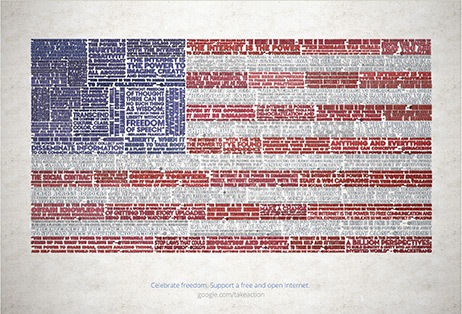The internet has changed my life. I've been able to easily keep up with old friends, find new friends that share my interests, and keep myself educated on everything from history to electronics. And of course, this blog would be nothing more than a personal journal if I couldn't share it online.
The flag shown above was created by Google and is comprised of several quotes about what makes the internet awesome. Check out some of the quotes in detail in the video embedded below, and add your quote at Google's site.



